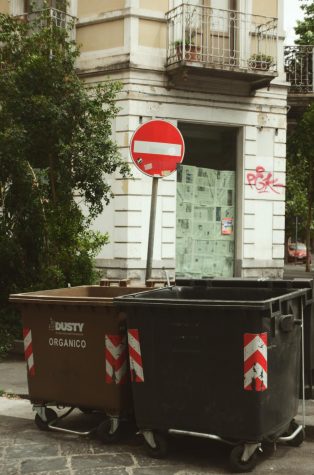Zero waste living and America’s overconsumption problem
Each year, the average American creates around one million pounds of trash; the equivalent of filling over 63,000 garbage trucks everyday. Unfortunately, all of this waste can not just disappear either, and usually gets sent to one of the 1,908 landfills throughout the United States. While it is difficult to put in perspective, think about how much trash we produce throughout our daily lives: plastic bags, paper towels, tissues, wrappers, the list goes on. This is primarily due to our disposable society, in which we do not fully value our belongings and are able to quickly go through tremendous amounts of resources. Over the years, zero waste living has become an upcoming trend where an individual drastically cuts the amount of waste they generate each year. The prime objective of zero waste living is to send as little to landfills as possible: reducing what they use, reusing what they are able to, and sending the rest of the materials to be recycled or composted. Contributing to the expansion of other environmental issues such as climate change and pollution, the overconsumption of the planet’s limited resources is only going to increase within the next few decades.
In our modern day world, consumerism plays a drastic role in every individual’s lifestyle. Zero waste living is about redefining the economic system, and ultimately having all waste transitioned back into it. This is called a circular economy: where economic activities are separated from the consumption of limited resources. One of the predominant problems zero waste living assists in tackling is the maintenance of landfills. Not only are millions of pounds of waste being sent to landfills each day, but a large portion of the waste doesn’t even reach them. Instead, it floats in the ocean or ends up on the side of roads. Plastic specifically is harmful to all living creatures, including humans, since it is not biodegradable. Rather than breaking down, it only shrinks to a smaller size. Even if waste does end up in landfills, many of them aren’t properly aerated and have toxins from electronics or batteries filtered in the soil.
While living without waste may seem as unrewarding and challenging at first, it ultimately allows people to make more conscious decisions about everyday choices and the effects that they have on themselves and the planet. In fact, the zero waste lifestyle isn’t completely about cutting trash altogether, but rather shifting daily routines and habits as well as limiting unnecessary purchases in order to adapt to the issues surrounding our world. Even if someone is not willing to go completely waste-free, there are numerous smaller transitions to become involved. One example, for instance, is starting to use non-disposable or reusable products. Using rags instead of paper towels, packing meals with reusable sandwich bags or bringing metal silverware and straws to restaurants are all small methods to make a difference. Another large contributor to the overconsumption problem is clothing items. It is estimated that around 3% of carbon emissions in the United States are due to the manufacturing and removal of excess clothing. One method is to try to shop at second-hand shops and thrift stores, or to simply invest in high quality clothing items that will last longer.
A quote from Jane Goodall suggests how “you cannot get through a single day without impacting the world around you, what you do makes a difference and you have to decide what kind of a difference you want to make”. With the problem of overconsumption only enlarging each day, it is up to the current world in order to make a difference. Even taking small steps in order to make more conscious decisions for the environment can result in large outcomes. No longer should hundreds of millions pounds of waste be sent to landfills each year, or toxic plastic products be washed up in bodies of water. Humans need to begin to shift their disposable lifestyles and rather acknowledge the detrimental effects of their consumption habits.

Hello! My name is Eileen Lincoln, and I am a junior here at Oakton! This is my third year in journalism but my first year as an Editor-in-Chief. I mainly...



